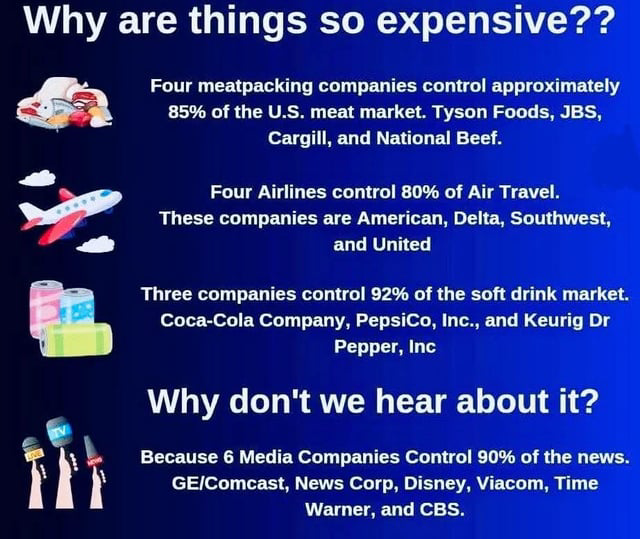this post was submitted on 01 Jan 2025
415 points (97.9% liked)
Progressive Politics
1256 readers
568 users here now
Welcome to Progressive Politics! A place for news updates and political discussion from a left perspective. Conservatives and centrists are welcome just try and keep it civil :)
(Sidebar still a work in progress post recommendations if you have them such as reading lists)
founded 2 years ago
MODERATORS
you are viewing a single comment's thread
view the rest of the comments
view the rest of the comments

Solution is to restore the 91% top-tier tax brackets we had during the most prosperous decade of the 20th century. A tax bracket that everyone will go out of their way to avoid.
When you're $10,000 over the bracket, you can keep $900 of that money for your stock portfolio and give the rest to the IRS, or you can spend $10,000 and pretend it is a "business expense". That money you spend turns into someone's paycheck; that $900 does not.
When you're a billion dollars over the line, you can keep $90 million of income and send $910 million to Uncle Sam. Or you can divest, and keep a lot more.
The money going to the IRS does, but you're otherwise absolutely right.
Which is why stock trading should be banned. It's main functions by now are propping up companies that keep decreasing quality and increasing prices while diverting money into the dragon hoards of billionaires and hectomillionaires, forever out of reach from the pool of available resources that other people need to live.
The government operates on a deficit. The money going to the IRS is just debt service.
Stock trading isn't actually the problem. Shares are ownership, and ownership should be held by the masses.
The problem is that the ultra-rich owns all that stock, rather than the general public. The solution to that isn't banning trading. Instead, we impose a wealth tax on all registered securities, payable in shares of those securities. If it is subject to SEC oversight, 1% of it gets transferred to IRS liquidators annually.
The first $10 million held by a natural person is exempt. The IRS liquidates it by selling off small lots over time, comprising no more than 1% of total traded volume.
That's not how a government budget works. It's much more complicated that "number red or number black" like in a household budget.
Taxes are what funds the government regardless of deficit reduction and lack thereof.
It is, indeed, much more complicated, but those complications cut both ways: It is not accurate to claim that the money paid to the IRS turns into paychecks. That idea is a ridiculous oversimplification.